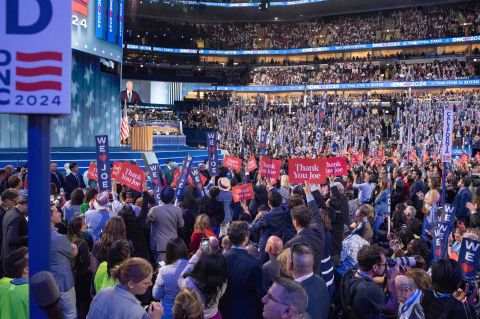Political Oil Prices: A Measured Response if Any

Oil prices are becoming an increasingly worrisome factor in today’s economies. They have risen dramatically over the past 6 or 7 months and are now driving inflation in many economies and acting as a drag on nearly all. They are not at these levels because markets are fundamentally out of balance.
There are still nearly four million barrels per day of surplus capacity available in the Middle East, albeit markets have tightened noticeably since last autumn. Producers have expressed concerns about these high prices and have offered incremental volumes of crude to their buyers.
The problem today is somewhat different than a few weeks ago because the Northern Hemisphere is moving into its peak driving season. Refineries have finished their maintenance and are tooling up to run transportation fuels for the third quarter. What is complicating things this time is the scarcity of light sweet crude as a result of the loss of Libyan crude for European refiners. This is an additional aggravation of factors already sustaining these oil prices.
It is surely true that Gulf producers have made additional crude available to their buyers, but it is not the crude their buyers want. The incremental heavy sour crudes available incur higher processing costs to turn into transportation fuels and would require some price discount to make them attractive. That would have price implications for the rest of their heavy sour crude streams and of course for the revenue streams to producers" treasuries. While the Gulf producers are not happy about high prices, they are currently spending a great deal of additional money on services for their citizens in some measure out of concern about contagion from the “Arab Spring”. So this might not be the time to expect surplus production holders to drive down prices.
In consuming countries these prices are becoming a political liability. Members of the US Congress are calling for mobilization of the US Strategic Petroleum Reserve to drive down prices. The US Administration knows full well that such action wouldn’t work, is not the intent of strategic stocks- and President Obama said as much. But the pressure is still on.
The US will remember former President Clinton’s efforts to help Al Gore in his Presidential race where the SPR was used to influence prices. Neither did the action influence prices nor did Al Gore win the Presidency. But a principle was breached; the SPR is for strategic purposes not price management - not because that isn’t an appealing idea, but because it doesn’t work.
If the US feels politically that it must do something, the best option for Europe may be to resist. But if Europe begins to see some benefit in joining an effort, the US could propose an action similar to its creative response to previous accidents in the Houston ship channel where quantities of SPR oil were made available on a time swap basis with replacement to come sometime after the market tension passed. The use of the light sweet crudes in the SPR now to achieve the quality balances needed for refineries could possibly have some beneficial (if fleeting) impact on price. If the Europeans or others wanted to join this kind of flexible response to the problem, they can make available on a swap basis, quantities of the transportation fuels themselves.
There are plenty of things going on in countries that produce oil. Many of these things could lead to significant disruptions in crude supplies. Now would not be a good time to weaken our strategic posture. But if it begins to look like politics is destined to trump good policy, then it would be better find a way to do so that does the least damage.
Prices have come off a bit this week, but the elections are months away. It isn’t over yet.

Available in:
Regions and themes
Share
Related centers and programs
Discover our other research centers and programsFind out more
Discover all our analysesIndia’s Green Hydrogen Strategy in Action: Policy Actions, Market Insights, and Global Opportunities
India is poised to remain the world’s fastest-growing major economy, and this rapid growth is driving a sharp rise in energy demand. As the most populous country on the planet, India urgently needs to decarbonize its energy systems.
Water in Mexico: an Emergency that Will Wait
Access to water is already and will become increasingly problematic for Mexican economic actors due to the progressive scarcity of the resource resulting from climate change, a geographical distribution that does not coincide with that of the population or economic activity, and management that has so far been far too lax.
AI, Data Centers and Energy Demand: Reassessing and Exploring the Trends
The information and communication technologies sector today accounts for 9% of global electricity consumption, data centers for 1-1.3%, and artificial intelligence (AI) for less than 0.2%. The growing energy demands of cloud services first, and now AI workloads (10% of today’s data centers electricity demand), have exacerbated this trend. In the future, hyperscale data centers will gain shares amongst all kinds of data centers and AI will probably account for around 20% of data centers electricity demand by 2030.
Unlocking India’s Energy Transition: Addressing Grid Flexibility Challenges and Solutions
India is rapidly scaling up its renewable energy (RE) capacity, adding 15–20 GW annually, but the ambitious goal of 500 GW of non-fossil capacity by 2030 is at risk unless the pace accelerates.











